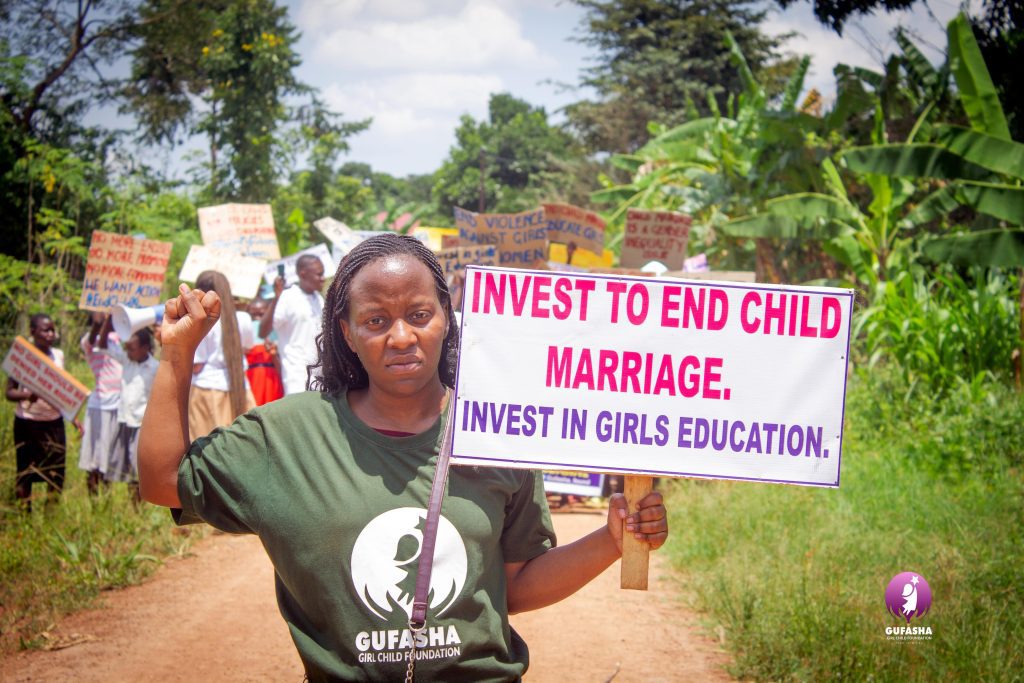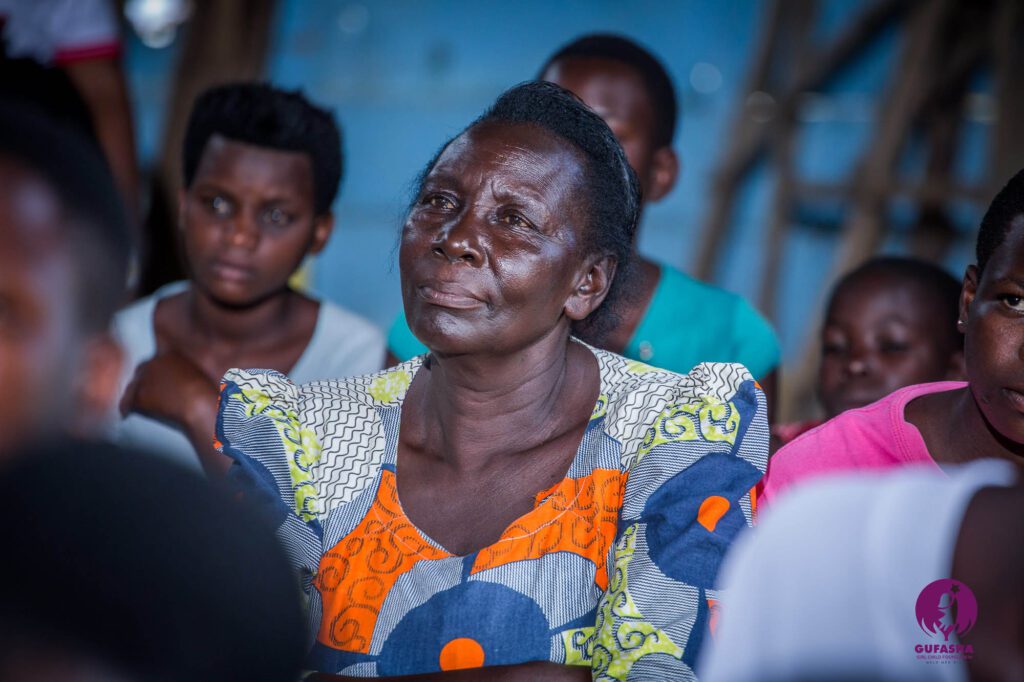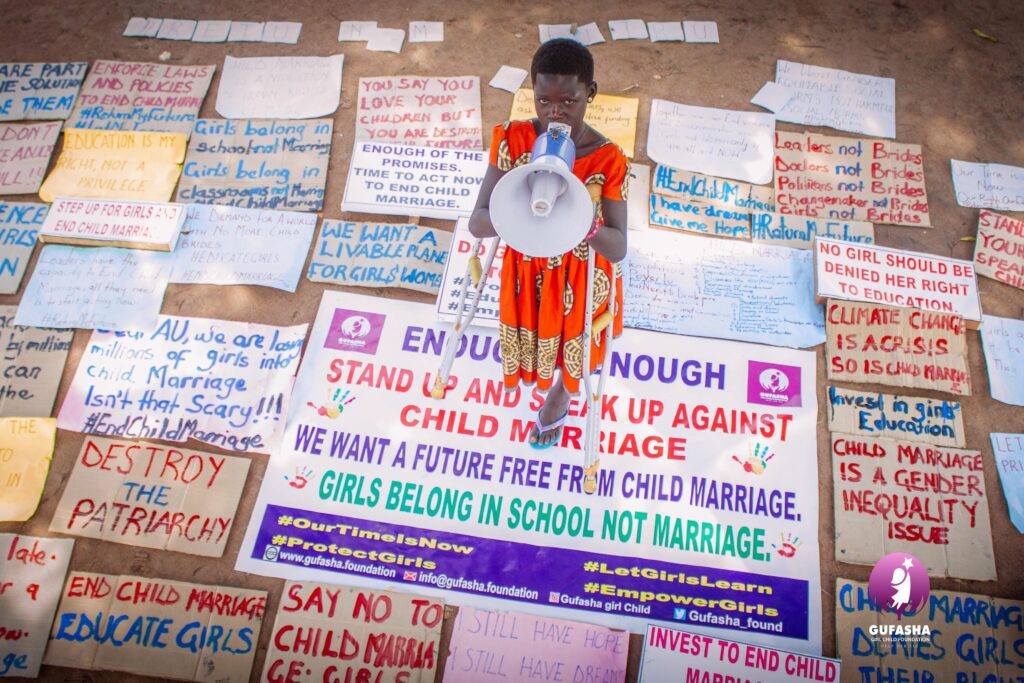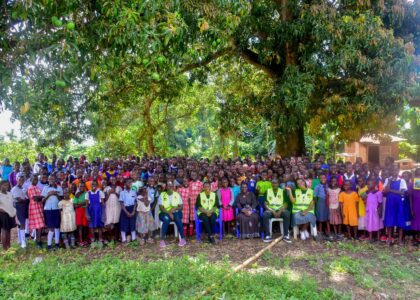I know of a 15-year old girl who has never set her foot in the classroom. She has been denied her fundamental right since childhood. Imagine how her future is or will be? How about the future of her children?
Girls deserve to dream and realize their fullest potential. They deserve to follow their dreams and become leaders, politicians, changemakers, philanthropists, engineers among others. However, so many girls have been held back by various barriers from acquiring and accessing good quality education to enable them achieve their dreams. According to UNESCO, 129 million girls globally are out of school of which 50 million girls are in sub-Saharan Africa.
Even though the gender gap in education has narrowed worldwide, this is not the same in Uganda. A 2019 report by the United Nations Girls’ Education Initiative states that more than 700,000 girls in Uganda between the age of 6 and 12 have never attended school. In addition, around half of girls between ages of 15 to 24 are illiterate and four in five girls don’t attend school.
Most girls in Uganda face barriers to education of which these barriers are both economic and cultural, and they have a profound impact on the educational opportunities available to girls. In some cases, these barriers can be so severe that girls are unable to access education at all.
Poverty-stricken families in Uganda are unable to afford the costs associated with sending their children to school, such as school fees. Even in areas where there is quite free education and parents don’t have to pay school fees, it is always costly for them to cater for other costs such as scholastic materials, uniforms, transport at the same time supporting household needs. Many families still prioritize the education of sons over daughters, which means that, when finances are tight, girls often remain at home.
Negative social and cultural norms such as traditional gender roles, gender-based violence and discrimination, child marriage and teenage pregnancies all limit girls from accessing education. According to a 2020 report by UNICEF, Uganda records 34% per year before the age of 15 and most of these girls have dropped out of school or have never set a foot in the classroom. In Uganda, 8.9 million girls aged 10–19 continue to be at are at risk of harmful practices including child marriage despite the legal provisions and the global community’s pledge to end child marriage and other forms of violence against girls(UNFPA,UNICEF 2019).The negative cultural and societal beliefs that surround girls’ education such as the belief that girls belong to the bedroom, the belief that girls belong in the kitchen and taking care of the household chores and the belief that girls become part of her husband’s family and so have little or no motivation of educating their daughters.
Climate change such as floods and severe droughts that hit most of Ugandan communities are likely to translate into the end of schooling of girls thus contributing to the rates of girls being married off young. In times of drought, girls walk long distances and spend much time to collect water which causes them to miss out school or reach school late and tired. In other words, climate change means an increase in child brides in Uganda.
Unfriendly school-environments that give room to violence and discrimination of girls make schools unsafe for girls to learn. The lack of Gender-responsive teaching practices that result in gender gaps in learning also continue to limit girls from staying in school and completing their education. Girls are also likely to be kept out of school during menstruation, partly due to a lack of washrooms and toilets, but also as a result of stigma.
As we know that girls have so much potential within themselves but this potential can only be unlocked with an education, should be the reason we strive to ensure that every girl is in the classroom, learning and completing her education.
We have what it takes to put a stop to the barriers that limit girls from acquiring quality education and achieving the UN Sustainable Development Goal on education of ensuring that all children especially girls have access to free, equitable and quality education by 2030.
The Ugandan government needs to put girls at heart and prioritize funding girls’ education to provide free education opportunities that helps girls, especially the most marginalized, get the quality education they need so they can be able to complete their education. However, funding and supporting gender-transformative education systems will make education more inclusive and equitable by identifying and tackling discriminatory gender norms, dismantling barriers and inequalities and promoting safe learning environments for all girls. Schools should also be able to provide WASH facilities and menstrual products to support girls during their menstruation and be able to stay in school.
There is need to support grassroot initiatives and campaigns that focus on creating awareness and mindset change in communities in abide to end child marriage and promote girls’ education.






